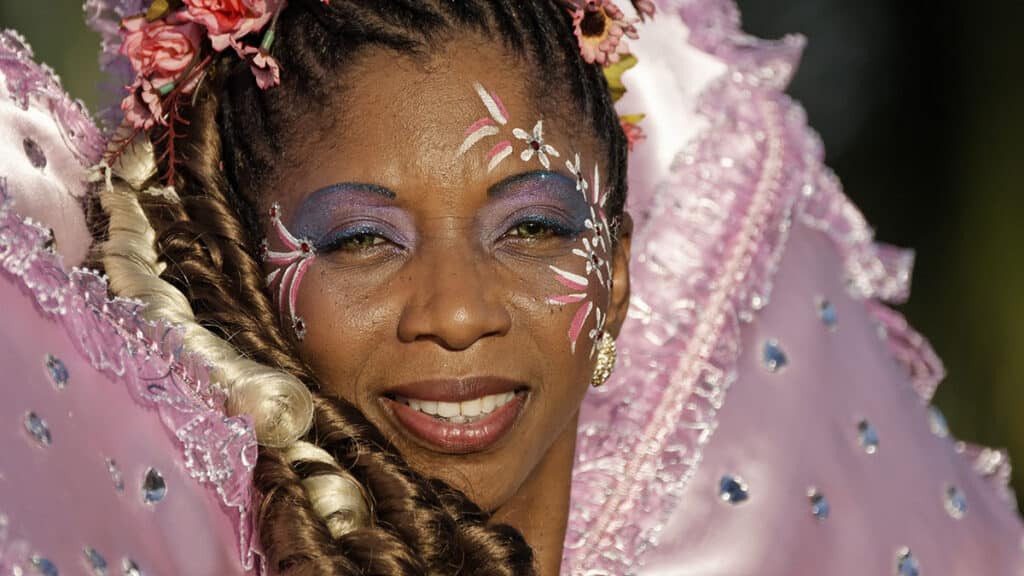International Creole Day, or Jounen Kwéyòl, is a celebration of our multicultural heritage that started on the Caribbean islands of Dominica and Saint Lucia.
International Creole Day

We celebrate on the last Friday of October, and in true Latin form, the party doesn’t stop until Sunday (or Monday morning). It’s very similar to an Indigenous Taíno areíto community gathering.
Celebrate International Creole Day, a festival of our Caribbean French African/Indigenous heritage, on Friday, October 27, 2023. 🇺🇸 🇫🇷 🇬🇫 🇬🇾 🇭🇹 🇱🇨 🇹🇹
Creole is Many Things
Creole is different things to different people. At its broadest, creole is a living language formed by children whose parents speak different languages. It is also a person whose heritage is part European. In popular usage, creole refers to people with a mixed French African/Indigenous heritage. We say “African/Indigenous” because both communities mixed together when they escaped colonizers by hiding in the countryside.
In the Caribbean, creole is often code for the Haitian Diaspora. Haiti is one of the cores of African Diaspora culture in the Americas. Haitians speak French or Kreyòl, a beautiful language. We like hearing it. The Haitian Revolution spread a Diaspora across the Caribbean, including to New Orleans, Trinidad, and French Guiana. The Creole presence is hidden under layers of colonization and blending, even in places that don’t speak French anymore. From New Orleans we got Mardi Gras and jazz. From Trinidad, we got Caribbean Carnival, calypso and soca. Both New Orleans and Trinidad now speak English, but the culture is creole. Trinidad has another layer of South Asian culture.
In the Colonial Era, Creole had another meaning. Colonial society was very stratified. Colonizers born in Europe had the highest status and could get away with pretty much anything. The second class was the Creoles, or in Spanish, “Criollos.” They were the children of colonizers, usually with African/Indigenous mothers. They pretty much ran things for their parents. Creoles were and are a highly educated and very talented creative community.
Nowadays creole usually means a person from Haiti, New Orleans, or the French or formerly French-speaking Caribbean islands. It also means something good from the Americas.
A Personal Creole Experience
Editor “Kiko” Keith
I have a creole experience in my own life. I’m born and raised American, but my mother was Canadian and my father was Thai. He was a native Thai speaker. English was his second language. I spoke my own “creole” language with him, and only with him. Speaking with my Dad, I would automatically match his speech patterns, unique words and expressions. It happened naturally.
But this is how creole languages are formed. Children blend the two languages of their parents. They create a new hybrid language that is unique and has its own rules.
